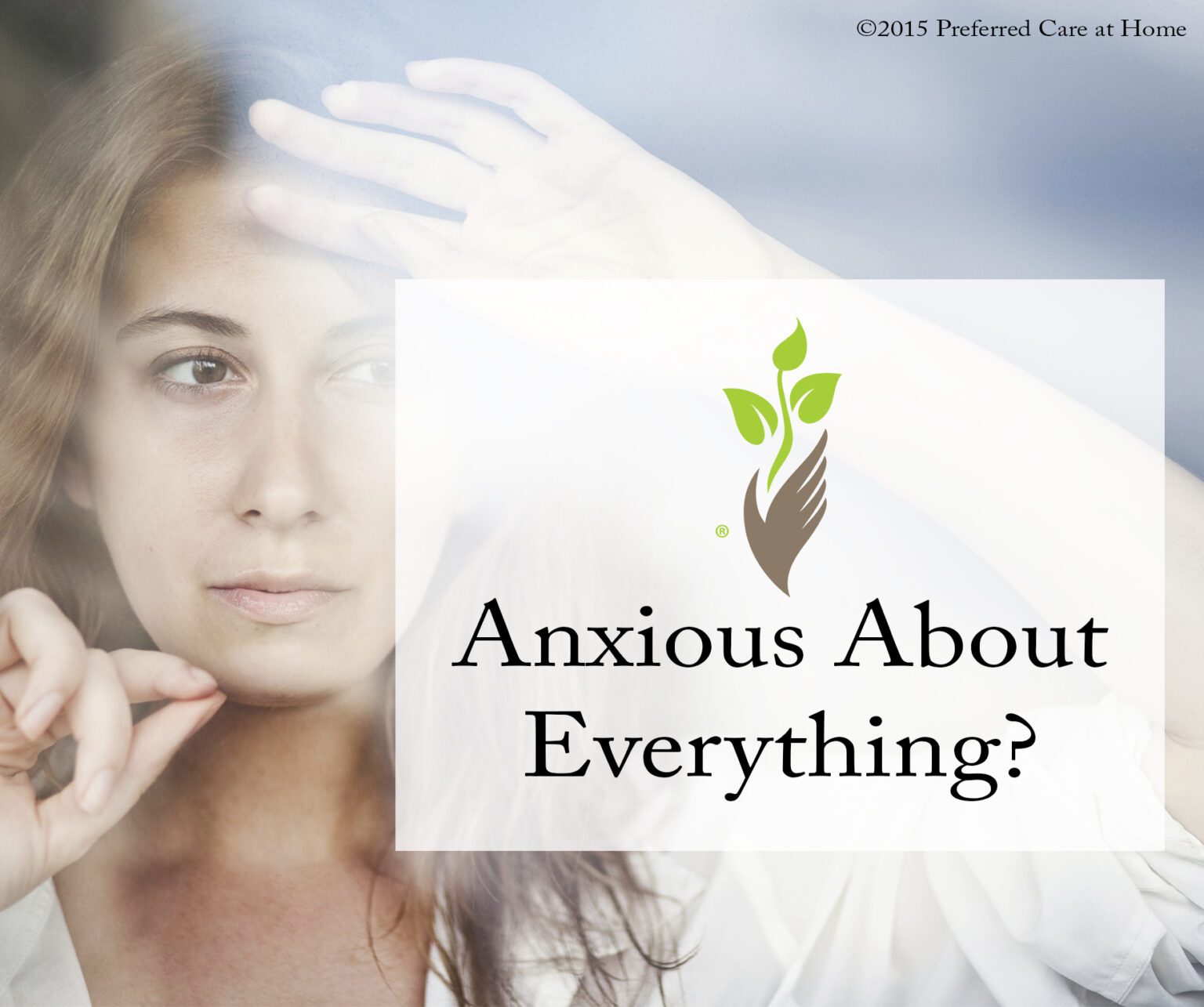Anxious About Everything?
Published December 18, 2015 by Laurie Salmons, RN, BSN in Senior Health & Wellness

As caregivers, at times we may find ourselves overly worried, worn out, anxious and needing support, but certainly we haven’t developed an anxiety disorder…right?
Can’t sleep at night? Constantly worried to the point of being unable to relax? A growing number of Americans experience so much anxiety that their lives are disrupted. According to the National Institute for Mental Health, “Anxiety disorders are more common than any other category of mental health disorder.” Yet it is common that anxiety disorders are not recognized by either the people who have them or their health professionals. This fact explains why this disorder often goes untreated.
Generalized anxiety disorder consists of daily, often excessive, nervousness and worry. The anxiety may focus on a specific circumstance, such as unrealistic money worries or an inexplicable fear that your loved one with die or be injured. There may also be a general apprehension that something bad is going to happen. A person with generalized anxiety disorder is often tense, is easily startled, and is unusually attentive to the source of the anxiety, or perceived cause, and may lie awake at night worrying. So as you can surmise, those who suffer from generalized anxiety disorder often report being exhausted for no particular reason that they can name. In other words, they literally wear themselves out with worry.
If you have read some of my other blogs for caregivers, you certainly know how strongly I feel about the importance of a proper amount of sleep. Lack of sleep, driven by worry, can also cause depression. Clinical depression can lead to a strong feeling of despair and even suicidal thoughts.
Many psychiatrists agree that the treatment for anxiety disorder is on a case by case basis. Patients generally respond to behavioral psychotherapy and/or medication. Commonly prescribed medications are antidepressants. Many of these medications have been effective in helping to reduce anxiety and feelings of worthlessness that may surface.
But there is good news, in addition to a medical treatment regime, there are other options that should support a reduction in anxiety:
- An exercise program – studies have shown that an ongoing walking/running program and other types of exercise have caused mood elevations to occur
- Other exercise choices such as yoga, Pilates, or Tia Chi
- Proper diet and the abstaining of alcohol and nicotine – alcohol is a depressant and nicotine is a stimulant and both can cause a poor night’s sleep and other health issues
- Relaxation techniques such as massage or meditation
- Bible study and prayer- many have experienced peace of mind from reading God’s promises and developing a deeper relationship with their Creator.
Anxious about everything? Ask for help, seek solutions before you literally wear yourself out! There is peace for you and answers, it’s a promise.
If you have questions about senior home
care services or if you want to start care:
Related Posts

January 27, 2025
Is There a Food Allowance Card for Seniors?
Jody Guerrieri, RN.

January 27, 2025
What Causes Glassy Eyes in the Elderly?
Jody Guerrieri, RN.

January 27, 2025
What Age Is Considered a Senior Citizen?
Jody Guerrieri, RN.
Helping seniors age in place, with dignity & grace.